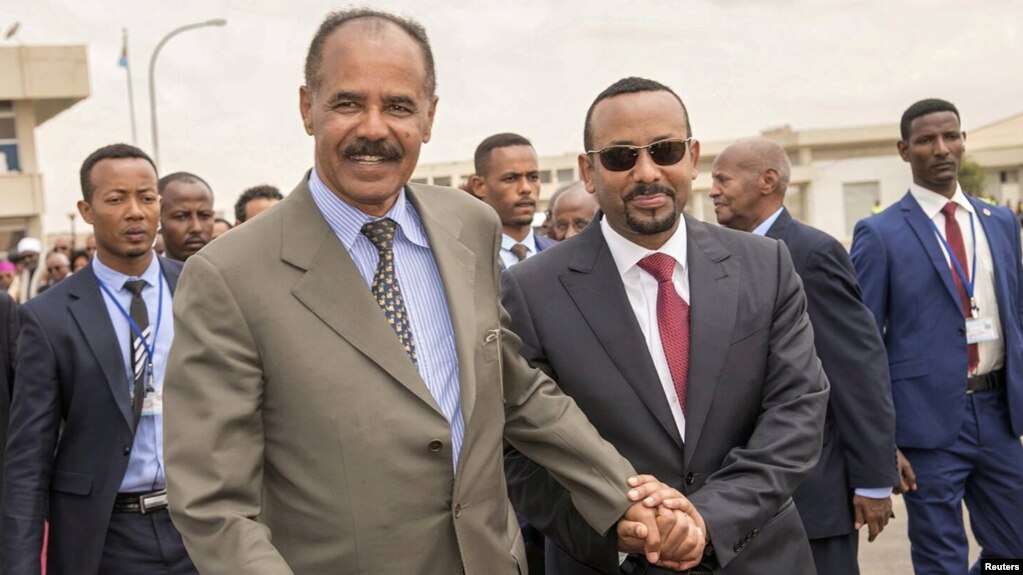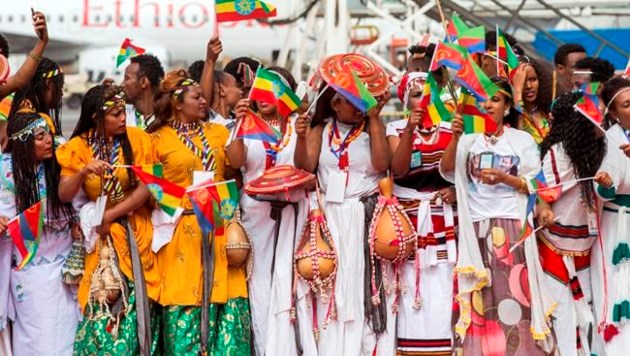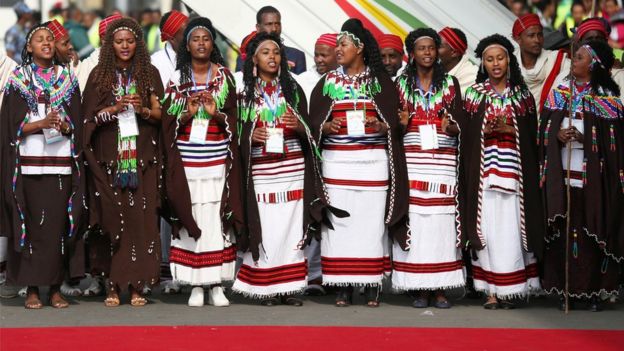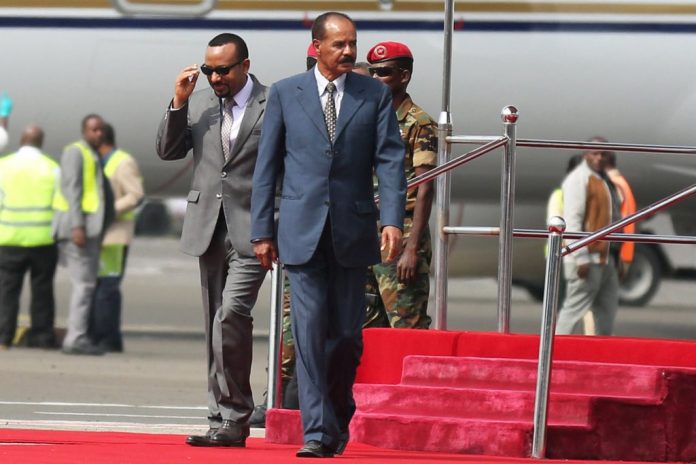Eritrea’s longtime president arrived in Ethiopia on Saturday for his first visit in 22 years amid a surprise diplomatic thaw between the once bitter rivals.
Thousands turned out in Ethiopia’s capital, Addis Ababa, under tight security to welcome the president, Isaias Afwerki, whose visit is the latest step in ending a state of war.
“This is a historic day for all of us,” the Eritrean leader said at a luncheon with Ethiopia’s new prime minister, Abiy Ahmed, at the National Palace. “Anyone who thinks the people of Eritrea and Ethiopia are separated is considered as naïve from now on.”
Mr. Abiy broke the ice last month by fully embracing a peace deal that ended a two-year border conflict.
Mr. Abiy visited Eritrea last weekend for talks, and this past week, the East African neighbors declared that their state of war was over.
Eritrea will reopen its embassy in Addis Ababa, closed since 1998, on Monday, Ahmed Shide, an Ethiopian government spokesman told reporters. He had earlier said that the embassy would reopen on Sunday.
ome Ethiopians have compared the restoration of relations with Eritrea, one of the world’s most closed-off countries, to the fall of the Berlin Wall. Telephone links have opened, and strangers in both countries have begun randomly dialing others across the border.
The first scheduled Ethiopian Airlines flights to Eritrea are scheduled to begin on Wednesday.
A visibly moved Mr. Abiy on Saturday praised residents of the capital for their warm welcome of the Eritrean president, with their chants of “Isaias! Isaias!” and flag-waving.
“I’m very emotional right now — I have no words to express how proud I am,” Mr. Abiy said at the luncheon.
“Thank you for the genuine love that you all showed us,” the Eritrean president responded.
Eritrea gained independence from Ethiopia in the early 1990s, but a border war broke out between the nations, and they became locked in bitter hostilities that left tens of thousands dead.
The international community has embraced the reunion as a welcome development in a critical and often unstable region in the Horn of Africa, near one of the world’s busiest shipping lanes and across from the Arabian Peninsula.
The old Eritrean Embassy in Addis Ababa has undergone a rapid renovation and is expected to open during Mr. Isaias’ visit. Mr. Isaias and Mr. Abiy are also expected to attend a concert of about 25,000 people on Sunday featuring local artists.
Some Ethiopians lining the streets for a glimpse of Mr. Isaias’ motorcade chanted songs that criticized the Tigrayan People’s Liberation Front. For years, the front was the strongest political party in Ethiopia’s governing coalition, and it took a hostile stance to Eritrea.
That changed when Mr. Abiy won power in April and began a breathtaking wave of reforms in the country, which has about 105 million inhabitants and is Africa’s second-most populous nation.
The gesture of peace with Eritrea has been the most surprising. Eritrea, a country of five million along the Red Sea, has been ruled by Mr. Isaias since gaining independence from Ethiopia in 1993 after years of rebel warfare.
While the two countries share close cultural ties, the border war and Ethiopia’s later refusal to hand over disputed areas was used by the 72-year-old Mr. Isaias to keep Eritrea in a state of military readiness, with a system of compulsory conscription that led thousands of Eritreans to flee to Europe, Israel and elsewhere.
Observers now speculate whether the end of fighting with Ethiopia will lead Eritrea, long criticized by rights groups, to open up and embrace new freedoms.
Business is another focus. Landlocked Ethiopia has sought outlets for its fast-growing economy and has already signed agreements to use Eritrea’s port facilities.
By The Associated Press
RELATED IMAGES




































